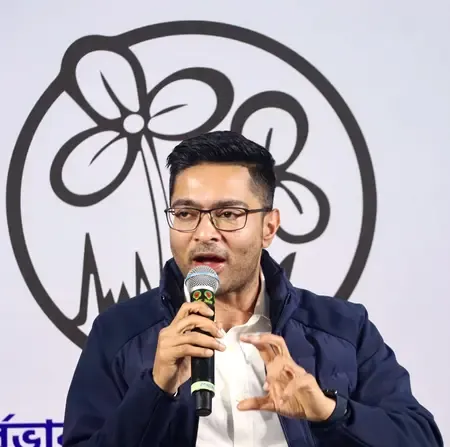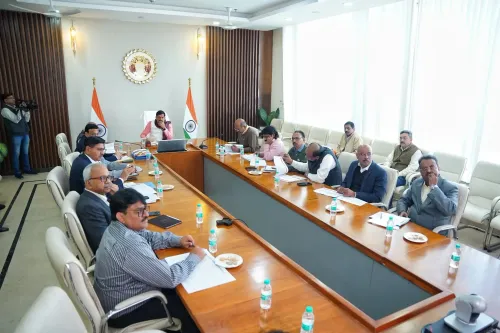Why was a heartbroken woman techie arrested for fake bomb threats to Bengaluru schools?

Synopsis
Key Takeaways
- Emotional distress can lead to severe actions.
- Cybersecurity is essential in protecting public safety.
- Law enforcement needs to enhance digital investigation techniques.
- Public awareness is crucial in recognizing and reporting threats.
- Mental health support is vital for individuals facing crises.
Bengaluru, Nov 6 (NationPress) A distraught woman robotic engineer, who previously served as a senior consultant at a well-known firm, was taken into custody by the Bengaluru Cyber Crime Police for allegedly dispatching fake bomb threat emails to numerous schools in the city and throughout the nation, according to police reports on Thursday.
The suspect, identified as 30-year-old Rene Joshilda from Gujarat, reportedly sent bomb threat emails to at least seven educational institutions in Bengaluru and also targeted schools in Chennai, Hyderabad, Gujarat, Punjab, Madhya Pradesh, Telangana, and Haryana, affecting a total of 11 states, as stated by authorities.
Investigators revealed that the woman employed VPN services to hide her location and utilized a virtual mobile number acquired through an app called “Gate Code” to send the emails. She was also found to be managing six to seven WhatsApp accounts under various aliases to carry out her scheme.
It was uncovered that Joshilda harbored feelings for a man named Prabhakar, but their relationship deteriorated after he wed another woman in February. In a fit of rage and revenge, she allegedly sent the bomb threats impersonating him in an effort to frame or humiliate him.
Authorities discovered that she had sent 21 fake bomb threats in Gujarat and six in Bengaluru, along with similar threats in various other states, leading to widespread panic and security alerts in schools across India.
In a disturbing development, she had also falsely claimed responsibility for a supposed “Ahmedabad-to-London plane crash,” sending emails stating that a Boeing aircraft flying from Ahmedabad to London had exploded—a claim later verified to be entirely fabricated.
After the false plane crash allegation, she sent another email to a school, stating: “I believe you are aware of our capabilities — like we sent you an email yesterday. We crashed the Air India plane with our former CM Vijay Rupani. We understand the police might think this plane crash was a prank and disregard it — kudos to our pilot. Now you know we are serious.”
Investigators later confirmed that she had sent the email using fabricated online identities.
Following a series of threats in Bengaluru, Police Commissioner Semaant Kumar Singh established a special investigation team (SIT) to apprehend the perpetrator. The team was led by Joint Commissioner of Police (West) Vamshi Krishna and DCP (North) Nemagowda, with CEN ACP Pawan acting as the investigating officer.
Police noted that the accused had previously been arrested by Chennai Police for similar offenses, and a coordinated inter-state investigation is currently in progress.
Authorities have characterized this case as one of the most intricate cyber hoaxes in recent times, due to the accused’s technical prowess and the extensive panic triggered by her emails.
The Karnataka Police took custody of the accused through a body warrant from an Ahmedabad prison. She confessed to her involvement in the hoax bomb threat case linked to the Kalasipalya police station. Following the investigation, the accused was returned to the Gujarat prison.
Joshilda was arrested in June by the Gujarat Police after threatening to detonate explosives at as many as 21 locations in and around Ahmedabad, including the Narendra Modi Stadium in Motera.
Accused Rene Joshilda resided in Chennai and holds a degree in BE Electrical. She previously worked in a tech firm in Bengaluru.










